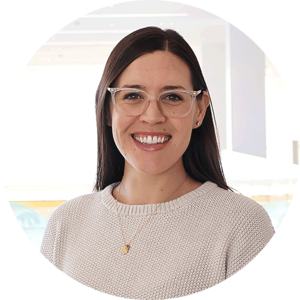Public Health degree

Tackle health problems and save lives - thousands at a time
While doctors treat individual patients, you think bigger. Much bigger. From tobacco control to vaccine programs, public health professionals save millions of lives each year.
You’ll study the social, cultural, political, biological, and geographic forces that impact individual, community, and population health. You’ll also examine trends, behaviours, and inequalities in health systems, and how to tackle these big challenges too.
At Waterloo, you’ll learn from celebrated experts who work with governments and regulatory bodies to make positive change in Canada and worldwide. By shaping real-life cigarette and vaping regulations and by utilizing wearable technologies to collect important patient data in a non-invasive way, your professors are saving and enhancing lives.
In a program that's fully accredited by the Council on Education for Public Health, you can feel confident that what you learn will prepare you for your career. You’ll have the flexibility to expand your expertise through options like community learning, a health apprenticeship, independent study, an undergraduate thesis, and more.
Plus Waterloo’s top co-op program will let you explore potential careers while earning money and gaining valuable contacts.
What courses will you take in Public Health?
First-year courses
Your upper-year courses in Public Health Sciences will span social health and well-being.
September to December
- HLTH 101 – Introduction to Health 1
- HLTH 103 – Biological Determinants of Health
- HEALTH 107 – Sociology of Activity, Health, and Well-being
- Two electives
January to April
- HEALTH 150 – Foundations of Human Anatomy and Physiology
- HLTH 102 – Introduction to Health 2
- HLTH 104 - Introduction to Health Data Science
- PSYCH 101 – Introductory Psychology
- One elective
This is a sample schedule. Courses or when a course is offered may change depending on availability.
After first year
Your upper-year courses will span global and community health, methods and application, biohealth, social sciences, and more. With your remaining elective classes, you can choose electives from many of the 100 subject areas at Waterloo to explore areas of interest, take pre-requisite courses, or pursue a minor.
View all the courses required for your degree.
Customize your degree in Public Health
You can also add additional areas of interest and expertise by including one or more of the areas of focus within the program.
- Minor (10 courses in an area of focus)
-
Addictions, Mental Health, and Policy
-
Gerontology
-
- Option (six to eight courses in an area of focus)
- Aging Studies
- Health Informatics
- Specialization (six courses in an area of focus)
- Health Research
You can also include one of the minors available to all Waterloo students. Popular minors of interest for Public Health students include Psychology, Human Resources Management, and Legal Studies.
Faculty:
Faculty of Health
Degree:
Bachelor of Public Health (BPH)
Available as a co-op program?
Yes
Available as a regular program?
Yes
Available as a minor?
No
Social science focus. With lots of electives, you can easily include minors and specializations such as health informatics, health research, and aging studies as part of your degree.
Get hands-on experience in class. You'll complete a thesis, independent study, or a community placement — plus some upper year courses include field learning.
Co-op = relevant paid work experience
In the world's leading co-op program, you'll explore potential careers, learn to interview for jobs, graduate with up to two years of valuable experience — and make money!
Sample co-op job titles
- Health and safety student officer
- Health promotions and events assistant
- Corporate events coordinator
- Residential/vocational assistant
- Health and wellness coordinator
- Rehabilitation and mental health assistant
- Junior policy analyst
- Public health analyst
Co-op work-study sequence
Starting in second year, you'll normally alternate between school and work every four months, integrating your classroom learning with real-world experience. You can return to the same employer for a couple of work terms to gain greater knowledge and responsibility or work for different employers to get a broad range of experience.
| Year | September to December (Fall) | January to April (Winter) | May to August (Spring) |
|---|---|---|---|
| First | Study | Study | Off |
| Second | Study | Co-op | Study |
| Third | Co-op | Study | Co-op |
| Fourth | Study | Co-op | Co-op |
| Fifth | Study | Study | - |
Your first work term will be halfway through second year (January to April 2028).
What can you do with a degree in Public Health?
Graduates typically pursue careers in community health centres, public health departments, social services agencies, non-profit organizations concerned with social justice and social services, and health consulting.
Recent graduates
- Public Health Promoter - Huron County Health Unit
- Policy Analyst - Public Health Agency of Canada
- Consultant, Strategy Management - Lakeridge Health
- Information and Communications Technology System Instructional Technologist - Centre for the Evaluation of Health Professionals
- Solutions Consultant - NexJ Health Inc.
- Life Enrichment Therapist - Halton Region Services for Seniors
Learn about the future of careers in health and helping professions.
Read profiles and view videos about the path Public Health graduates took to pursue their career.
Further education
While the full range of further education depends on your individual interests, graduates commonly pursue a master's, PhD, or other professional program in areas such as public health, epidemiology, health promotion, or social work.
Common questions about the program
What’s the difference between Public Health and similar programs at other universities?
Waterloo’s program takes a systems approach to disease prevention and treatment, so you can understand how to influence the many factors that affect health. As a Public Health student, you’ll be well-prepared for health care careers in the future because you’ll be exposed to subjects that will grow increasingly important over time, such as leveraging information technology, understanding the aging population, mental health, and more. With many small class opportunities like labs and tutorials, over 40 health-related courses to choose from, and experiential learning opportunities like co-op and our EDGE certificate program, you’ll have a distinct advantage when entering the workforce or applying to further studies.
Waterloo's Public Health program is also accredited by the Council on Education for Public Health. This means your degree has gone through a rigorous review to ensure it's current and relevant to what's happening in the world.
Should I take this program if I’m interested in pursuing medical school or another clinical health profession?
While you may use Public Health as a stepping stone to clinical health professions such as medicine, there are very few required science courses so it isn’t designed to be a preparatory program for clinical health professions. Instead, you’ll focus on understanding systemic barriers affecting health such as socioeconomic status and apply this knowledge to prevent disease within communities. If you’re interested in public health and clinical health professions, you should consider Health Sciences.
Does this program lead to a career as an Environmental Public Health Professional (EPHP) or Public Health Inspector?
While this program is excellent preparation for a range of careers in health care, government and social services, and health technology, it is not an accredited EPHP program.
Is this program available online?
No. While you may be able to take some courses online, most courses required for the degree are available through in-person classes only.
How long does it take to complete this program?
It takes four years to complete this program as a full-time student through the regular system of study in which you’ll take courses between September and April each year and have your summers off. You can also choose the co-op system of study where you’ll alternate between full-time studies and full-time jobs relating to your program. A co-op program takes five years to complete — and you’ll graduate with nearly two years of paid work experience.
Admission requirements
Ontario students: six Grade 12 U and/or M courses including
- Any 4U English (minimum final grade of 75% is required)
- Any 4U Mathematics (minimum final grade of 70% is required)
Admission averages
Not studying in Ontario? Search our admission requirements.
How to apply
Apply directly to this program on your application.
Get information about programs, applying, and more!
Subscribe to our monthly newsletter
Get valuable updates and tips sent straight to your inbox!

Connect with us
Questions about courses, programs, requirements, or careers?
Please contact Clare Stevens, our Faculty of Health recruitment co-ordinator who can answer any questions you have.
From the Missing Manual
Check out our Missing Manual website for tips and advice from Waterloo students and staff.

Showing up for those in need at Lot42
Have you ever visited a safe injection site? Prepared meals for people experiencing homelessness? In the HLTH 448 course, those might be your usual field trips.

Indigenous initiatives within the Faculty of Health
While there are many Indigenous spaces at Waterloo, students in the Faculty of Health have additional opportunities to learn about Indigenous cultures and knowledge.

Helping others holistically
In Waterloo’s Faculty of Health, Manal, a Public Health student, discovered a holistic perspective that explores diverse determinants of health while maintaining a solid grounding in science.